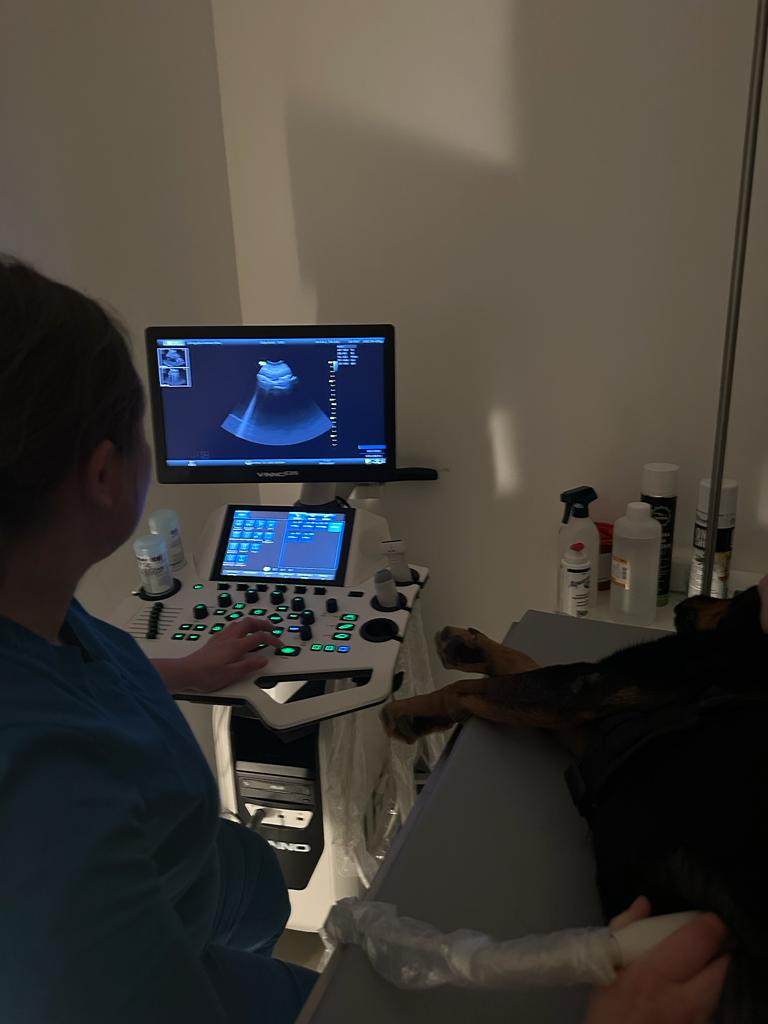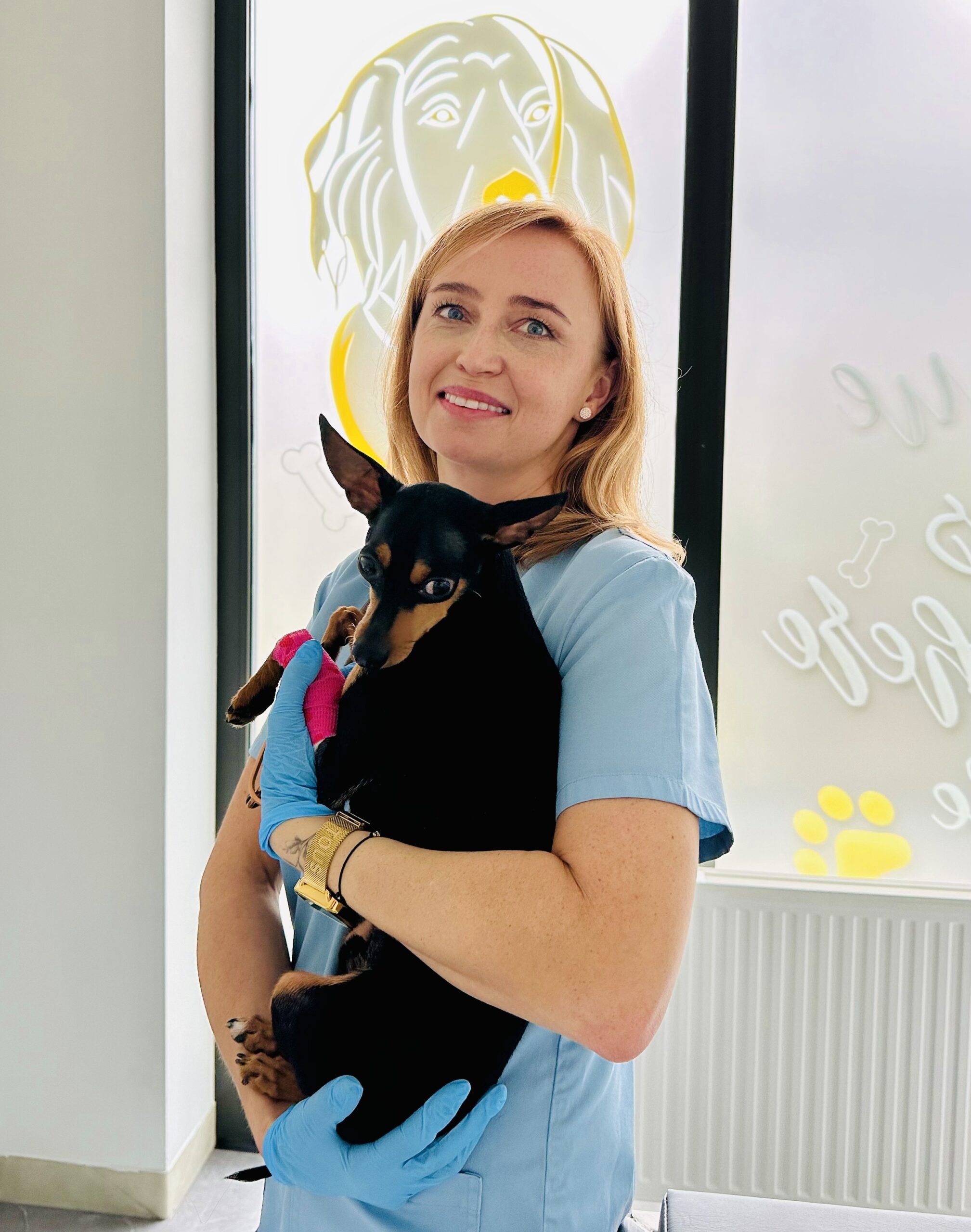-

Vaccination and prevention in Zviropolis
According to the common international standard, pets must be vaccinated at regular intervals every year. This is not only the duty of every responsible owner, but also an important step to keep your pet healthy. In this article, we will look at a few reasons why this simple rule should be followed.
-

Ixodes ticks and fleas are parasites that can pose a health risk to our pets. Ixodes ticks can transmit toxoplasmosis (babesiosis), Lyme and Ehrlich tick-borne diseases, causing anemia and general toxic poisoning in dogs. Fleas, on the other hand, cause dermatitis, severe itching and can sometimes be a source of tapeworm infection (heartworm disease).
-

Imaging diagnostics is the process of using various imaging technologies and techniques, such as X-ray imaging, ultrasound imaging and MRI, to obtain images of your pet's internal organs and tissues. These images are used to prevent and treat disease and to monitor the animal's condition during treatment.
Dr. Magdalena Walewska, DVM

She graduated from the Wrocław University of Environmental and Life Sciences in 2010. She began her veterinary career at a well-equipped clinic in her hometown. After two years of veterinary practice, she moved to Warsaw to start her doctoral studies at the Warsaw University of Life Sciences (SGGW) in the Department of Internal Medicine. During her doctoral studies, besides conducting research, she taught classes on canine and feline neurology for students from Poland and abroad. During this time, she also participated in numerous conferences and workshops related to canine and feline neurology.
After completing her academic work, she returned to clinical practice, assuming the role of Head of the Hospital at one of the largest emergency veterinary clinics in the country. During this period, she worked with patients in emergency situations and those requiring neurological and neurosurgical treatment. She assisted in qualifying patients for neurosurgical procedures (discussing clinical status, CT results, prognosis) and provided hospital care during their recovery. Over these three years, she participated in numerous courses related to MRI and CT image interpretation, cerebrospinal fluid examination, nerve/muscle biopsies, and the latest neurosurgical solutions in veterinary medicine.
Currently, at Zviropolis clinics, she is responsible for the treatment and management of neurological patients, particularly dogs and cats.
The patients under her care most often come with issues such as:
– epilepsy (various types)
– gait disorders: ataxia, circling, compulsive walking
– paralysis
– postural changes: consistently tilted head, axial head twisting, lordosis, kyphosis, ventroflexion
– nystagmus: horizontal, vertical, rotational
– chronic pain
– dementia
– aggression not due to behavioral issues
As part of her consultations, she conducts a detailed interview, clinical examination, and neurological examination.
The examination allows for:
– Defining whether the problem actually concerns the patient’s nervous system
– Determining the location of the disease
– Choosing differential diagnostics
– Making a decision about additional tests (blood tests, ultrasound, X-rays, MRI, CT, biopsy, cerebrospinal fluid examination)
– Defining treatment methods and prognosis
Veterinary neurology at Zviropolis is based on three main elements:
1. Diagnostics
2. Diagnosis
3. Selection of appropriate treatment methods
> Diagnostics
This involves selecting appropriate diagnostic techniques. An important aspect is discussing with the caregiver such issues as:
– Preparing the patient for examination
– The advantages and disadvantages of various diagnostic methods
– Possible complications associated with carrying out the examination
> Diagnosis
This primarily results from:
– Determining neurological localization
– Defining symptoms characteristic of specific elements of the nervous system
– Interpretation of additional test results
> Selection of Treatment Method
The choice of treatment method consists of many elements, primarily the nature of the disease. Unfortunately, some conditions can only be managed by reducing persistent symptoms. The treatment technique also depends on the patient’s predispositions and the caregiver’s abilities. Each case requires individual analysis. Available therapeutic options in veterinary neurology include:
– pharmacological treatment
– surgical treatment
– physiotherapy
The most common neurological diseases that Dr. Walewska clinically manages include:
– epilepsy
– vestibular system diseases
– spinal cord diseases
– neuropathies
– myopathies
– brain diseases
– loss of vision or hearing
– limitations in proper environmental perception
If you suspect that concerning symptoms may stem from the nervous system or your pet has been referred for a neurological consultation, we invite you to schedule an appointment at one of the Zviropolis facilities for a consultation with Dr. Magdalena Walewska, DVM.
